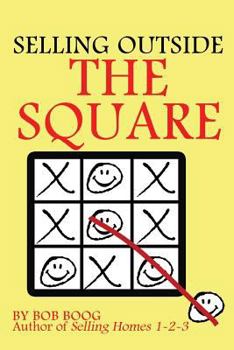Vendiendo Fuera de lo Acostumbrado: Ideas Creativas Para Ayudarle a Hacer Mas Ventas
Select Format
Select Condition 
Book Overview
Many books on selling offer the same advice: set realistic goals, work hard and do the right thing. Other books are more motivational and some just have the words "rich" or "millionaire" in them. In Selling Outside the Square, author Bob Boog asked himself this question: What causes a customer to want to buy something in the first place? While looking for the answer to that question, he discovered that researchers believe that most people use 12 powerful psychological triggers as a shortcut to making a buying decision. These triggers help us on a psychological level but could they also be exploited by a shrewd salesperson to enable him or her to better sell more products? In this interesting book, Boog identifies the current, largest buying population in America and Europe and unlocks their inner thoughts and core beliefs. He then describes how to utilize the 12 psychological triggers to sell to them and adds more than 12 additional field-tested marketing tips. There is also an interesting and informative chapter on creative problem solving. Entertaining, inventive, lively and embellished with a bit of humor, Selling Outside the Square is a surprisingly genuine yet timely book that youll want your entire sales staff to read This description may be from another edition of this product.
Format:Paperback
Language:English
ISBN:1014910668
ISBN13:9781014910660
Release Date:September 2021
Publisher:Hassell Street Press
Length:382 Pages
Weight:1.18 lbs.
Dimensions:0.8" x 6.1" x 9.2"
Customer Reviews
4 customer ratings | 4 reviews
There are currently no reviews. Be the first to review this work.




















